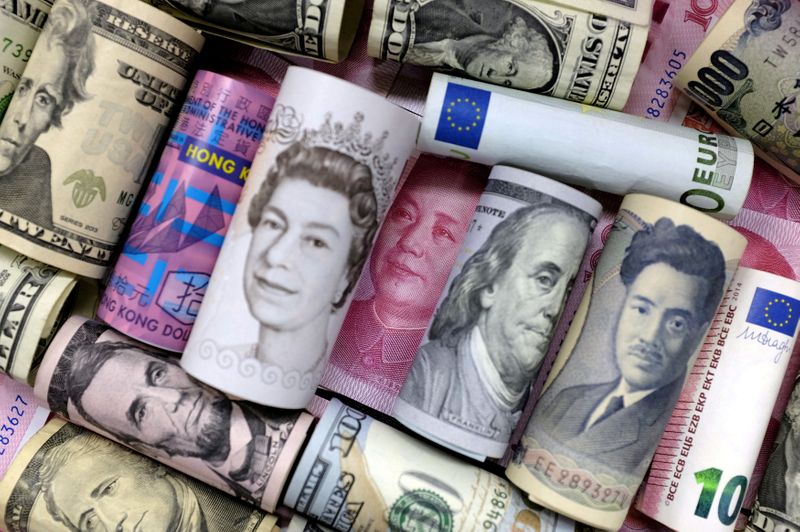By Tom Westbrook and Eimi Yamamitsu
SINGAPORE/TOKYO (Reuters) - The dollar held steady on Tuesday as investors weighed whether an accommodative turn from the European Central Bank later this week could hit the euro, while the pound nursed losses due to Brexit uncertainty.
A day after thin holiday trade, the greenback was slightly stronger against a basket of currencies (=USD) at 93.128 and firmed marginally against the euro (EUR=EBS) at $1.1809.
Moves in the Asian day were modest, but had the dollar back under gentle pressure as risk appetite appeared to return to equity markets. [MKTS/GLOB]
The Australian dollar
The main focus this week is on the European Central Bank's policy decision on Thursday.
Most analysts don't expect a change in the central bank's policy stance but are looking to the message on its inflation forecasts and whether it seems concerned by the euro's strength.
The meeting comes after the single currency marked a two-year high just above $1.20 at the beginning of the month, until comments about its level from ECB chief economist Philip Lane knocked it lower.
"The ECB could raise more concerns over a further appreciation in the euro and make some downward revisions to its inflation projections," said Commonwealth Bank of Australia (OTC:CMWAY) currency analyst Kim Mundy, which would flag easier policy.
"In our view, the dollar can lift further over the remainder of the week because of the possibility the ECB takes a sharper dovish turn."
Elsewhere, the dollar traded firmly against the Japanese yen amid talk of a snap election - something that Yoshihide Suga, frontrunner to succeed Shinzo Abe in next week's leadership ballot - signalled in a newspaper interview.
Analysts say many currency market participants no longer consider the leadership race as a catalyst, as the next leader is likely to follow Abe's policy path.
"Around eight years ago (when Abe took over), the yen was stronger at around 70 per dollar. But with the current dollar/yen level, there's nothing much the successor can do currency-wise," said Daisuke Karakama, chief market strategist at Mizuho Bank.
"The stronger local equity market should be more of a concern instead," he said.
The yen
The British pound
A Financial Times report suggesting Britain might legislate to override its Brexit withdrawal agreement prompted the EU to warn there would be no deal if that happened, raising the prospect again of a hard Brexit.
New talks are due to begin in London later on Tuesday.
The pound edged 0.2% lower to $1.3146, after shedding 0.8% overnight, and sat a fraction above a two-week low against the euro at 89.76 pence (EURGBP=).
Some traders also sold sterling against the yen (GBPJPY=), last traded at 139.63, hovering near a two-week low of 139.58 it hit in the previous session.
"The key question for markets is whether the remarks are still mostly brinkmanship as negotiations near the finish line," said NAB economics director Tapas Strickland. "The mild market reaction suggests markets think so and still sniff a deal."
Meanwhile, data in Australia showed employment eased over the month to Aug. 22, while last month's business confidence gained but remained fragile.
Japan's economy shrank an annualised 28.1% in April-June, worse than the initial estimate of a 27.8% contraction, revised data from the Cabinet Office showed on Tuesday.

Final European GDP figures are due later in the day.